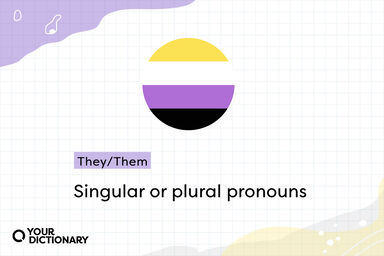They Definition
Origin of They
-
Cognate to Old English þā (“those") (whence Modern English tho), Scots thae, thai, thay (“they; those"), Icelandic þeir (“they"), Faroese teir (“they"), Swedish de (“they"), Danish de (“they"), Norwegian de (“they"), Norwegian Nynorsk dei (“they"), and German die (“the; those", plural article and pronoun). See also tho.
From Wiktionary
-
The term was borrowed by Middle English (as they, thei) in the 1200s from Old Norse þeir, the nominative plural masculine of the demonstrative sá, which acted in Old Norse as a plural pronoun. The Norse term derives from Proto-Germanic *þai (“those"), from Proto-Indo-European *to- (“that"). It gradually replaced Old English hÄ« and hÄ«e (“they").
From Wiktionary
-
Middle English from Old Norse their masculine pl. demonstrative and personal pron. to- in Indo-European roots
From American Heritage Dictionary of the English Language, 5th Edition
The term has been used as a singular pronoun since at least the 1400s.
From Wiktionary
Related Articles
Find Similar Words
Find similar words to they using the buttons below.





